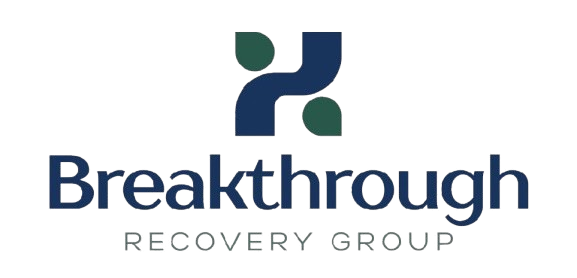Need To Know: Treatment Center Spokane
When it comes to finding a supportive and comprehensive path to healing, a trusted treatment center in Spokane can provide the lifeline individuals need. Whether battling substance use issues like alcohol, fentanyl, meth, cocaine, or opioids—or managing co-occurring mental health disorders such as depression, anxiety, bipolar disorder, or PTSD—personalized care makes all the difference. In Spokane, numerous centers are dedicated to helping individuals at every stage of recovery. From evidence-based therapies to strong family involvement and relapse prevention strategies, these programs create the structure and support needed for lasting change. Choosing a reputable treatment center isn’t just about getting clean—it’s about learning to live well.
Partial Hospitalization Program (PHP): A Structured Path Toward Stability
A Partial Hospitalization Program (PHP) serves as a powerful bridge between inpatient care and returning to everyday life. Offered at many treatment center Spokane locations, PHPs provide intensive, structured therapy during the day while allowing patients to return home in the evenings. This format supports a high level of care without requiring full-time residence, making it ideal for individuals transitioning from more acute treatment levels. The typical schedule includes a full day of therapeutic activities, focused on both addiction recovery and mental health stabilization. PHP is especially valuable for those struggling with dual diagnoses such as opioid addiction and PTSD or methamphetamine use and bipolar disorder. Key components of a PHP often include:
• Participate in daily group and individual therapy sessions designed to provide personalized support and foster meaningful connections with others on a similar journey.
• Evidence-based modalities such as Cognitive Behavioral Therapy (CBT), Dialectical Behavior Therapy (DBT), and Eye Movement Desensitization and Reprocessing (EMDR), all designed to address a range of mental health challenges effectively.
• Skill-building workshops and psychoeducation sessions designed to enhance personal growth, improve coping strategies, and provide valuable knowledge on mental health and well-being.
• Comprehensive medication management for mental health disorders, ensuring personalized treatment plans and ongoing support for optimal outcomes.
• Regular monitoring and ongoing assessments to track progress, identify areas for improvement, and ensure goals are being met effectively.
Outpatient Programming: Flexibility Meets Clinical Support
Outpatient treatment is another cornerstone service provided by any quality treatment center Spokane residents trust. Outpatient programming gives individuals the ability to live at home while attending scheduled treatment sessions throughout the week. This model works especially well for individuals with strong support systems or those stepping down from higher levels of care like PHP. It allows for a continued focus on recovery while reintegrating into work, school, or family life. For individuals struggling with addiction to alcohol, fentanyl, or cocaine—and also facing anxiety or depression—outpatient care can help maintain momentum in recovery. Outpatient services typically offer:
•Flexible therapy schedules to accommodate daily life
• Ongoing group and individual therapy sessions designed to provide personalized support, foster connections, and promote emotional well-being
•Mental health support and medication management
•Relapse prevention planning and accountability tools
•Access to family therapy and educational resources
Dialectical Behavior Therapy (DBT): Emotional Regulation in Recovery
Dialectical Behavior Therapy (DBT) is one of the most effective treatment methods offered at a treatment center Spokane location, especially for individuals battling emotional dysregulation. Originally developed to treat borderline personality disorder, DBT has proven highly effective for individuals with co-occurring disorders, such as bipolar disorder and substance use. DBT emphasizes the development of mindfulness, interpersonal effectiveness, distress tolerance, and emotional regulation—skills essential for long-term recovery. It is particularly helpful for those experiencing intense mood swings, suicidal ideation, or self-destructive behaviors often linked to PTSD and substance abuse. Core components of DBT include:
- Skills training groups designed to help individuals develop and improve emotional regulation, providing practical techniques to manage emotions effectively in everyday situations
•One-on-one therapy sessions with DBT-trained clinicians
•Real-world behavioral strategies to manage cravings and triggers
•Crisis coaching and support between sessions
•Built-in accountability and structured progress tracking
Cognitive Behavioral Therapy (CBT): Restructuring Harmful Thoughts
Cognitive Behavioral Therapy (CBT) remains a foundational tool in most recovery programs at a treatment center Spokane. CBT helps individuals identify and restructure negative thought patterns that lead to destructive behaviors, such as substance abuse or avoidance. By recognizing the connections between thoughts, feelings, and behaviors, patients gain the tools needed to challenge automatic, irrational beliefs that contribute to their struggles. CBT is particularly effective for depression, anxiety, and substance use disorders. When clients begin to shift how they think, they begin to change how they act—leading to sustained recovery. Benefits of CBT include:
•Identification of negative thinking patterns that fuel addiction
•Skill-building to manage cravings and stress
• Customized worksheets and homework assignments designed to reinforce learning, address individual student needs, and help solidify key concepts covered in lessons
•Practice with real-life situations and relapse scenarios
•Support for managing mental health challenges like PTSD and anxiety
Eye Movement Desensitization and Reprocessing (EMDR): Healing Past Trauma
Trauma often sits at the root of addiction and mental health issues, and EMDR has become a vital tool in addressing this at a treatment center Spokane. EMDR is an evidence-based therapy designed to process and resolve traumatic memories that continue to affect behavior and emotions. For those with PTSD, childhood trauma, or unresolved grief, EMDR can dramatically reduce symptoms by reorganizing how traumatic memories are stored in the brain. EMDR is frequently used alongside therapies like CBT or DBT to provide a comprehensive treatment plan. Many individuals addicted to opioids, meth, or alcohol turn to substances as a way to numb traumatic pain—EMDR provides a healthier path to healing. EMDR typically involves:
•Safe, guided recall of distressing experiences
•Bilateral stimulation (like eye movement or tapping) to process memories
•Reduction in emotional distress and flashbacks
• Provides faster relief by combining approaches, offering quicker results compared to talk therapy alone
•Integrated support for co-occurring disorders like depression and anxiety
Motivational Interviewing: Finding Internal Drive for Change
At any leading treatment center Spokane, motivational interviewing (MI) is used to empower clients to explore their own reasons for change. Rather than forcing clients into recovery, MI creates a collaborative conversation that enhances motivation and commitment. It’s especially beneficial for clients in the early stages of treatment or those ambivalent about recovery. By focusing on individual goals and values, this method helps align internal desires with therapeutic action. When someone struggling with alcohol or fentanyl abuse feels heard and understood, they’re far more likely to engage in lasting recovery. Key elements of motivational interviewing include:
•Open-ended questions and reflective listening
•Affirmation of client strengths and values
•Emphasis on personal choice and control
• Reduction of resistance and ambivalence by addressing concerns, fostering open communication, and building trust to encourage a more positive and collaborative approach
•Goal-setting that aligns with the client’s vision of a better life

Nutritional Coaching: Supporting the Body During Recovery
Substance use takes a significant toll on the body, often depleting vital nutrients and disrupting metabolic balance. Nutritional coaching at a treatment center Spokane helps restore physical wellness as an essential part of the recovery process. Clients learn how to properly fuel their bodies, address cravings, and rebuild health after addiction. This service is particularly important for those recovering from stimulant abuse (like meth and cocaine), which can lead to dangerous weight loss and nutritional deficiencies. Good nutrition supports brain function, mood stability, and energy levels—all critical for recovery success. Nutritional coaching typically provides:
•Personalized meal planning and education
•Support in managing blood sugar and mood through diet
•Nutrient repletion plans tailored to specific substance histories
•Guidance on hydration and healthy habits
• Ongoing support for developing cooking skills, learning new recipes, and creating effective grocery planning strategies to make meal preparation easier
Family Support: Healing the Whole System
Addiction and mental health disorders don’t just affect the individual—they ripple through families and relationships. A strong treatment center Spokane will always include family support as part of the recovery model. Family members are educated about the nature of addiction and mental illness, and they learn how to support without enabling. When families heal alongside their loved ones, outcomes improve dramatically. It’s also crucial for setting healthy boundaries, repairing broken trust, and creating a united front for relapse prevention. Family support services often include:
•Weekly family therapy sessions and support groups
•Psychoeducation about addiction and mental health disorders
•Communication skills training and conflict resolution
• Tools for setting healthy boundaries and creating recovery agreements to support personal growth and maintain positive relationships
•Opportunities for rebuilding connection and trust
Relapse Prevention: Building Long-Term Success
Recovery doesn’t end when treatment stops—relapse prevention is essential to maintaining progress. Every trusted treatment center Spokane offers detailed relapse prevention planning to help clients stay on track once they leave formal care. This includes identifying personal triggers, developing coping strategies, and creating a clear roadmap for what to do if cravings or setbacks arise. Relapse prevention is especially important for substances like opioids and fentanyl, where relapse can be life-threatening. It’s also critical for those with depression, anxiety, or PTSD, whose symptoms may resurface during times of stress. A comprehensive relapse prevention plan may feature:
•Trigger identification and coping strategy development
• Establishing daily routines and creating accountability structures to help maintain focus, productivity, and consistency in achieving goals
•Support network planning (sponsors, peer groups, therapy)
•Crisis management strategies and safety plans
•Ongoing check-ins and alumni support programs
Treating Co-Occurring Disorders: An Integrated Approach
Many individuals seeking help at a treatment center Spokane deal with both addiction and mental health disorders—often referred to as co-occurring or dual diagnoses. Integrated treatment models address both issues simultaneously, ensuring that neither condition is ignored. For example, someone using meth to cope with bipolar depression needs more than just addiction counseling—they need mood stabilization and ongoing psychiatric support. By treating both the root and the symptom, recovery becomes far more sustainable. Spokane centers are increasingly equipped to offer this kind of well-rounded, clinically informed care. Dual diagnosis treatment often includes:
• Comprehensive assessments addressing both psychiatric conditions and substance use, designed to provide a full understanding of co-occurring issues for effective treatment planning.
• Comprehensive medication management tailored for individuals dealing with depression, anxiety, PTSD, or bipolar disorder, ensuring personalized care to support mental health and well-being.
• Therapeutic integration of Cognitive Behavioral Therapy (CBT), Dialectical Behavior Therapy (DBT), and trauma-focused methods to provide comprehensive support tailored to individual healing and growth.
• Regular monitoring to assess progress and make necessary adjustments to ensure care remains effective and aligned with individual needs needs.
• Comprehensive relapse prevention planning tailored to address both conditions, focusing on strategies to maintain long-term recovery and overall well-being.
Conclusion: A Lifeline at Every Stage of the Journey
The path to healing from addiction and mental health challenges is deeply personal, but no one has to walk it alone. A trusted treatment center in Spokane offers individuals the opportunity to embark on a transformative journey with the right combination of support, care, and expertise. Here, clients gain access to a comprehensive, compassionate approach that addresses every aspect of recovery, treating both the mind and body as interconnected parts of the healing process. Treatment begins with a thorough evaluation to design a plan tailored to the individual’s unique needs. From Partial Hospitalization Programs (PHP) and outpatient services to evidence-based therapies like Cognitive Behavioral Therapy (CBT), Dialectical Behavior Therapy (DBT), Eye Movement Desensitization and Reprocessing (EMDR), and motivational interviewing, each intervention is carefully chosen to empower clients. These therapies not only address the root causes of addiction and mental health struggles but also provide tools for long-lasting change. No matter how difficult the journey may seem, recovery is possible. It all begins with the right support system and a team of dedicated professionals. If you or a loved one are searching for help, our qualified treatment center in Spokane offers a safe, welcoming space to take those first steps toward a brighter, healthier future. Contact us simply by calling 1 (509) 652-2138 or visiting our website. With the right care, every step forward becomes a step toward reclaiming your life and rediscovering hope.





